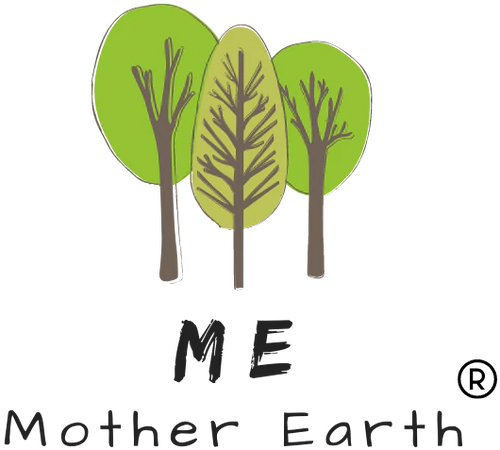When we think of essential creatures on our planet, bees might not be the first that come to mind—but they should be. Bees are tiny environmental superheroes. Their role in pollination directly supports the growth of the fruits, vegetables, nuts, and seeds we rely on for nourishment. Without them, our global food supply would look dramatically different—and not in a good way.
🐝 Why Bees Matter
Bees are responsible for pollinating more than 75% of the world’s flowering plants and around 35% of global food crops. From apples and almonds to berries and squash, much of what we eat depends on these pollinators doing their job.
Bees also help maintain ecosystems by enabling wild plants to reproduce—these plants provide food and shelter for a wide range of wildlife. In short, bees are a cornerstone species, quietly keeping biodiversity alive and well.
🌍 A Delicate Balance
Unfortunately, bees are in trouble. Their populations are rapidly declining due to pesticide use, habitat loss, climate change, and disease. When bees are stressed or exploited for commercial gain—such as through large-scale honey and beeswax production—the entire hive can be harmed.
Beeswax may seem harmless, but it plays an essential role in the hive. Bees use it to build honeycomb structures, store food, and protect their young. Removing it disrupts their environment and weakens the colony. Exploiting bees to produce something that can easily be replaced with a natural, plant-based alternative simply isn’t necessary. In commercial operations, bees are often overworked and subjected to stressful environments. Practices like artificial feeding, forced relocation, and repeated harvesting of wax and honey can weaken colonies and interfere with their natural behavior. These methods prioritize production over the well-being of the hive, and when alternatives exist that don’t harm or burden animals, it makes ethical and environmental sense to choose them. That’s why even this “natural” ingredient is something we avoid.
🌱 Our Vegan Commitment
As a 100% vegan company, we choose not to use any animal-derived ingredients—including honey or beeswax—in our products. This decision supports our core belief that no living creature should suffer for the sake of consumer goods.
Instead, we use plant-based alternatives like candelilla wax or carnauba wax. These vegan ingredients are just as effective and far more sustainable and ethical.
💖 We Advocate for All Life
We advocate not only for the planet, but for every living being on it. That’s why all of our products are proudly vegan and cruelty-free. You’ll find us listed on the Leaping Bunny Compassionate Shopping Guide, a global standard for animal-friendly brands.
But our mission doesn’t stop there. We also donate to ocean conservation and other environmental organizations making a positive impact. You can read more about our mission and the impact we’re making here.
🌼 How You Can Help Save the Bees
You don’t have to be a beekeeper to make a difference. Here are a few simple ways you can help protect bees in your everyday life:
-
Plant Bee-Friendly Flowers
Grow native wildflowers and pollinator-friendly plants in your garden, balcony, or even a windowsill pot. Bees love lavender, sunflowers, coneflowers, and mint. Check to make sure what you plant will thrive locally to support pollinators. -
Avoid Pesticides
Many chemicals used in conventional gardening and agriculture are toxic to bees. Choose organic or natural alternatives, and encourage your community to do the same. -
Support Organic and Vegan Brands
Choosing cruelty-free and bee-friendly products supports ethical businesses and helps reduce the demand for animal-derived ingredients like beeswax and honey. If you absolutely need to use beeswax or honey, make sure to only source from sustainable, local beekeepers who are transparent about their practices. -
Provide Water Sources
Bees get thirsty too! Leave a shallow dish of water with pebbles for them to land on and safely drink from. -
Leave the Dandelions
Early in the season, dandelions can be one of the first food sources for bees. Let them bloom before mowing them down. -
Educate Others
Spread the word about the importance of bees and how everyday choices—like the products we buy—can help protect them.
📊 What’s Happening With Bee Populations Today?
In recent years, the number of managed honeybee colonies—particularly in the United States—has actually increased. As of 2024, the U.S. reached an all-time high of approximately 3.8 million colonies, and globally, the number of colonies has grown by nearly 47% since 1990, according to the Food and Agriculture Organization (FAO).
This growth is largely thanks to increased interest in beekeeping and greater awareness of bees' importance. But here's the reality: higher numbers don’t mean healthier bees.
Despite the rise in colonies, U.S. beekeepers reported losing over 55% of their honeybee colonies between 2023 and 2024—the highest annual loss rate on record. Major threats like pesticides, disease, habitat loss, climate change, and parasites (like Varroa mites) continue to put immense pressure on bee populations.
Even more concerning is the status of wild bee species, which are declining in both population and biodiversity. Unlike managed bees, these wild pollinators don’t benefit from human intervention and are highly sensitive to environmental disruption.
This is exactly why we believe that protecting all pollinators—wild and managed—means taking meaningful steps in how we live, farm, and consume.
In Closing
Bees are small, but their impact on our planet is enormous. Protecting them means protecting the food we eat, the ecosystems we love, and the future we want to build.
We believe compassion is a powerful form of activism. By choosing vegan products—not just in food, but in personal care and lifestyle—we show love for the earth and for all who share it.
Thank you for joining us on this journey. Together, we can create a world that’s kind, clean, and buzzing with life. 🌼🐝

